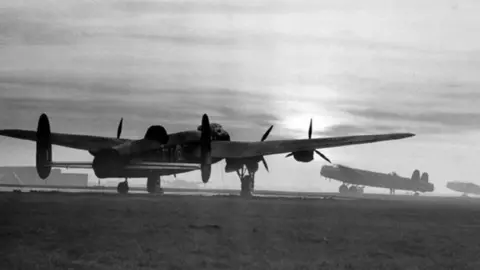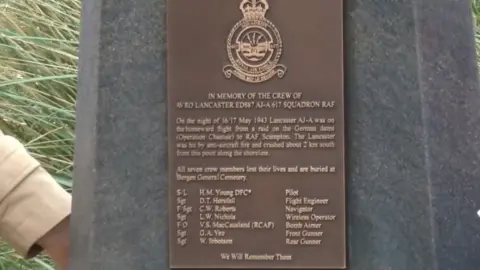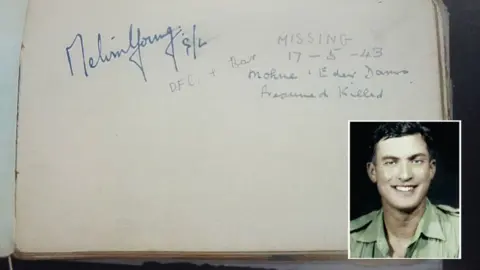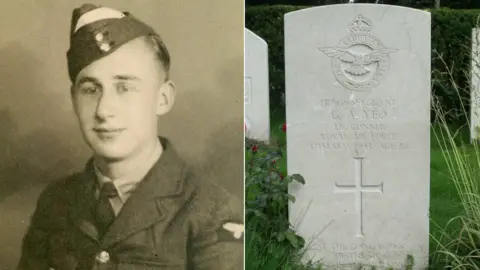Memorial to Dambusters crew downed by German gunners
 Getty Images
Getty ImagesA memorial has been unveiled to commemorate a Dambusters crew who were shot down moments before reaching safety.
The Avro Lancaster - flown by Flt Cdr Henry Melvin "Dinghy" Young - was shot down after successfully bombing the Möhne Dam.
The aircraft came under fire from a German position on the Dutch coast.
Bombing raids on three dams in Germany's Ruhr Valley took place in May 1943, with eight aircraft lost.

Henry Young - known as "Dinghy" because he survived two crashes into the sea in an inflatable boat - flew in the first wave of attacks on three major dams in Germany's industrial Ruhr Valley using Barnes Wallis' bouncing bomb.
But as his aircraft AJ-A turned to return for home across the North Sea, just moments from safety, it was hit by the last German position near Castricum aan Zee, Netherlands.
The bodies of the men were washed ashore over the following days and were buried at nearby Bergen cemetery.
 Nicholas Mellors Auctioneers
Nicholas Mellors Auctioneers Yeo family
Yeo familyFunds for the memorial were raised by Marielle Plugge van Dalen and her father, Jan, who set up the 617 Squadron Netherlands Aircrew Memorial Foundation.
She said: "We've been working on the memorial for quite a long time - it's very important we do this for the men who died here on the beach 75 years ago."
"I was born in 1981, way after the war - but I still get emotional about it - especially when I know these guys were younger then me - and it is just amazing what they did," she added.

Dambusters raid

- The audacious attack on German reservoirs in the Ruhr Valley with "bouncing bombs" was a major coup for the British
- Immortalised in the Dambusters film, the aim was to flood a vast area in one raid
- 19 bombers left RAF Scampton, near Lincoln, in three waves on the night of 16 May 1943. The first headed to the Möhne and the Eder Dams, the second and third to the Sorpe dam
- Out of the 133 crew that set off, only 77 returned
- The Sorpe Dam was damaged but the Mohne and Eder Dams were destroyed, flooding the Ruhr valley and killing an estimated 1,300 people, mostly civilians
